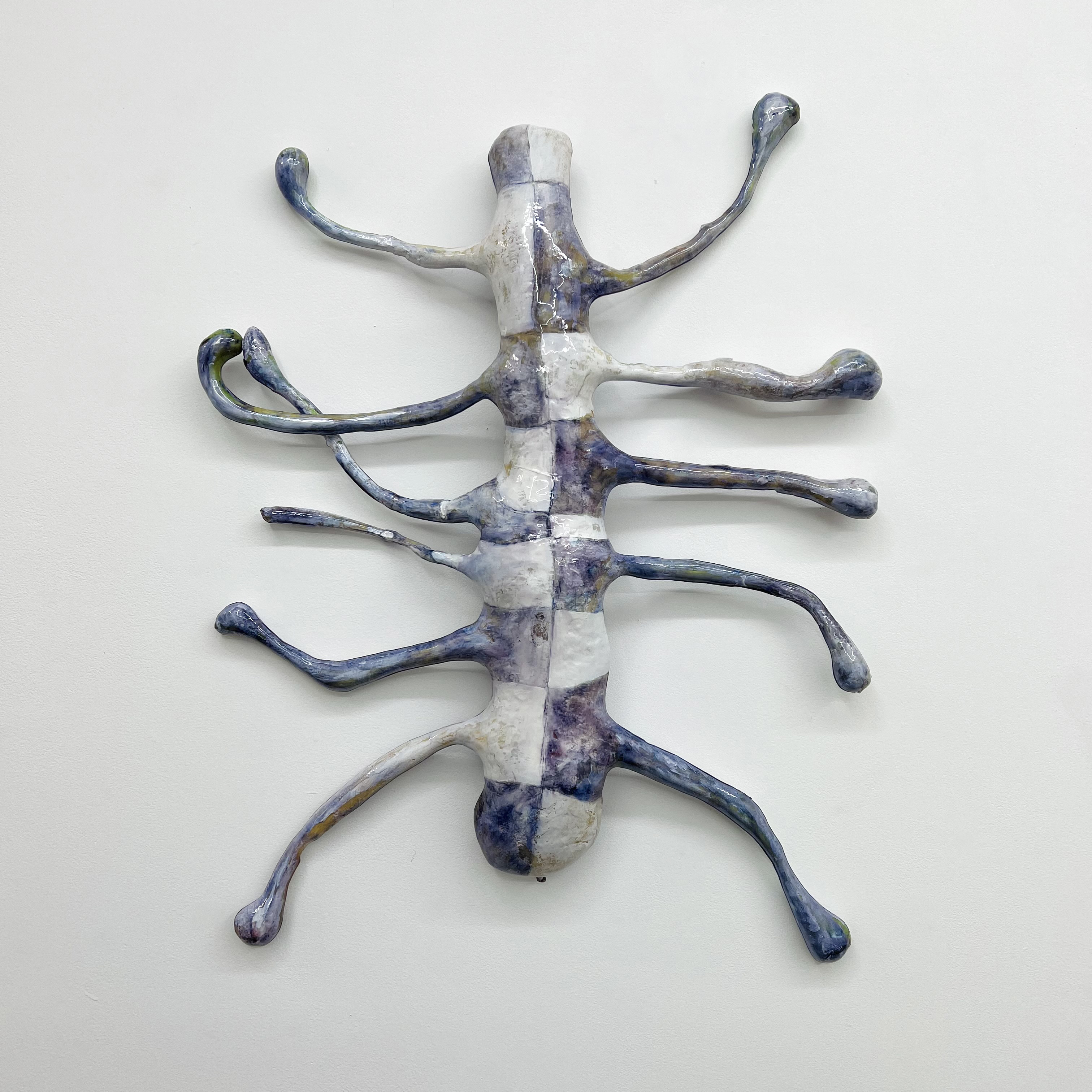
Adds Donna presents Impossible Garden with new work by Martha Poggioli (b. 1988, Australia) which uses interpretive taxonomies and organismic sculptures to engage with the complicated discourse around the neutralization of birthing bodies. Impossible Garden investigates the politics of plants in relation to alternative body knowledges through the slippage which occurs between traditional practices and the medical establishment. Invoking the hybrid nature of procreative bodies, Poggioli meshes organic with synthetic, tracing the mangled history of reproductive objects and herbal practices.
At an early age, Poggioli took interest in clinical objects, observing their relationship to the body and the body’s ability to become object. Her works are now informed by investigative research and comprehensive mapping of over 700 pessaries, ranging from rings to IUDs which mimic the interior architecture of the body in familiar and alien forms. These devices stem from convoluted histories caught between violence, exclusion, and desire. In Impossible Garden, Poggioli introduces chemical and botanical typologies, intertwining fundamental geometric components with anatomical drawings and structures. From the cotton root to the ‘naked lady plant’ Poggioli explores the imbued mechanistic power of flowers and herbs which would otherwise be hidden or masked in beauty.
Martha Poggioli is an interdisciplinary artist working with design, media, and social discourse. She holds an MFA from the School of the Art Institute of Chicago (2019) and a BFA from Queensland University of Technology, Australia (2009). She is currently an artist in resident at Sharpe-Walentas Studio Program. Past residencies include; The Australian Tapestry Workshop, Leiroy-Neiman Ox-Bow Fellowship, Kohler Arts/Industry Residency, and a multi-institutional project between SPACES Gallery, Sears think[box] & Dittrick Medical History Center in Cleveland, OH. Poggioli has exhibited internationally including at Rhona Hoffman Gallery (Chicago, US), Kunstgewerbemuseum (Dresden, DE), Mütter Museum (Philadelphia, US) and RMIT Design Hub (Melbourne, AU).




